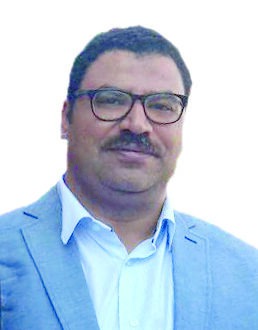By Ihab Shaarawy
UNGA78 is about to convene high-level meetings this week amidst huge challenges. World leaders heading to New York should be ready to address the intensifying climate emergency, new conflicts, the cost of living, and growing inequality. UN Secretary-General, António Guterres described the gathering of 193 member states for the UN General Assembly High-Level Week as a “one-of-a-kind moment” to both assess the state of world affairs and also “act for the common good”.
The week would begin with a two-day meeting on how best to ‘rescue’ the Sustainable Development Goals (SDGs) agreed in Paris eight years ago on the road to the ambitious 2030 deadline. These goals encompass a wide range of interconnected issues, such as eradicating poverty, ensuring quality education for all, promoting gender equality, combating climate change, and fostering peace and justice. While these goals are crucial for the well-being and future of our planet and its inhabitants, there are several obstacles and complexities that hinder their attainment.
Ahead of the SDG Summit, a new UN report by an independent group of scientists called for transformational shifts rooted in science that would urgently reverse course and turbocharge the SDGs.
The report under the title, ‘Times of Crisis, Times of Change — Science for Accelerating Transformation to Sustainable Development’, indicates that the current pace towards the SDGs is too slow, and the world’s efforts are insufficient due to recent backtracking on several sub-goals where it had previously made progress. The reports also warned that several interim goals have been heading in the wrong direction for a significant period, especially regarding the environment.
However, the report highlights the significant contribution of science, and evidence-based actions, to counter uncertainty and address global challenges – the eradication of poverty, ending hunger, tackling climate change, reversing biodiversity loss, and reducing inequality, among others. It underscores that, together, we have the knowledge to steer change toward a better future. But still, the question remains about the ability of scientists to affect the political decision. Theoretically, politicians need to hear the voices of scientists to make informed, evidence-based decisions, address complex issues, anticipate emerging challenges, gain public trust, and bridge the gap between research and policy. Ignoring scientific expertise may lead to policy decisions that are uninformed, ineffective, or even detrimental to society.
Some politicians may prioritise short-term gains, such as immediate economic benefits or addressing specific voter concerns, over long-term scientific considerations that may require more time or effort to address.
Those who may face pressure or influence from interest groups, such as industry lobbyists, also tend to ignore or undermine scientific findings that could have negative implications for their interests.
However, it’s important to note science and research are indispensable for achieving the SDGs. They provide the necessary knowledge, technological advancements, and monitoring mechanisms to tackle the complex and interconnected challenges facing our world. Emphasising investment in scientific research and promoting evidence-based decision-making is crucial for making progress toward a sustainable and inclusive future.
As we reach the middle of the journey towards them, world leaders should recognise that time is running out before achieving those goals that provide a comprehensive vision and roadmap for sustainable development. These goals recognise the interconnectedness of social, economic, and environmental challenges and emphasize the need for integrated and transformative approaches.






Discussion about this post